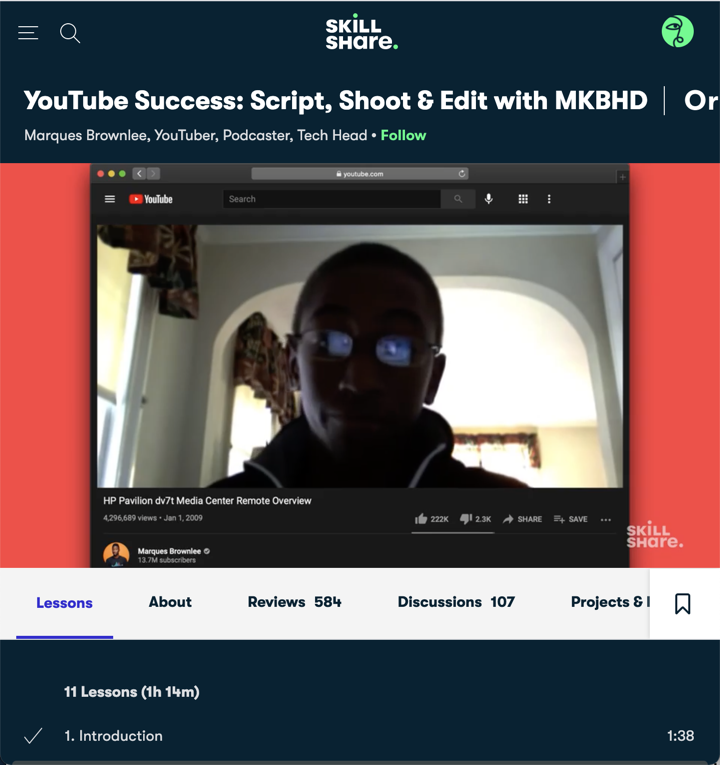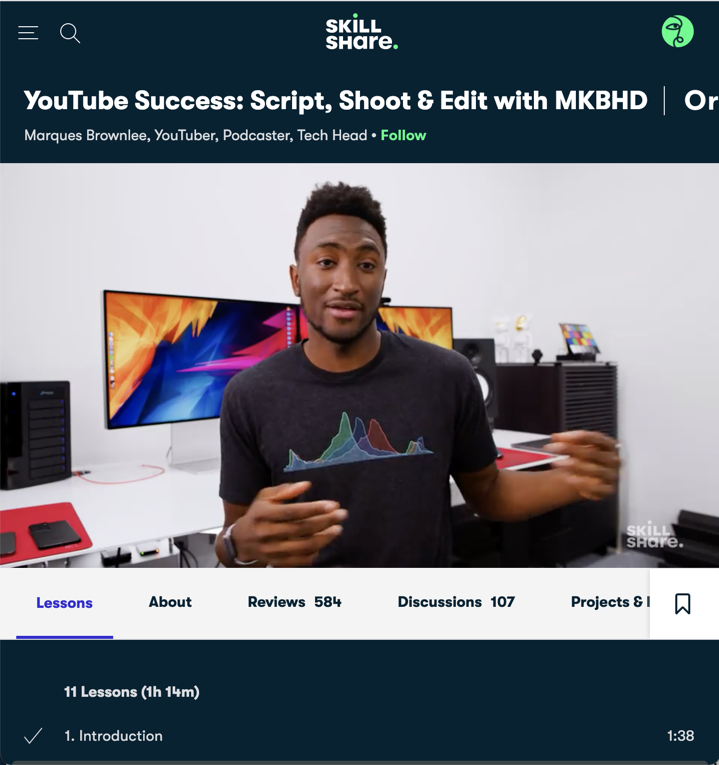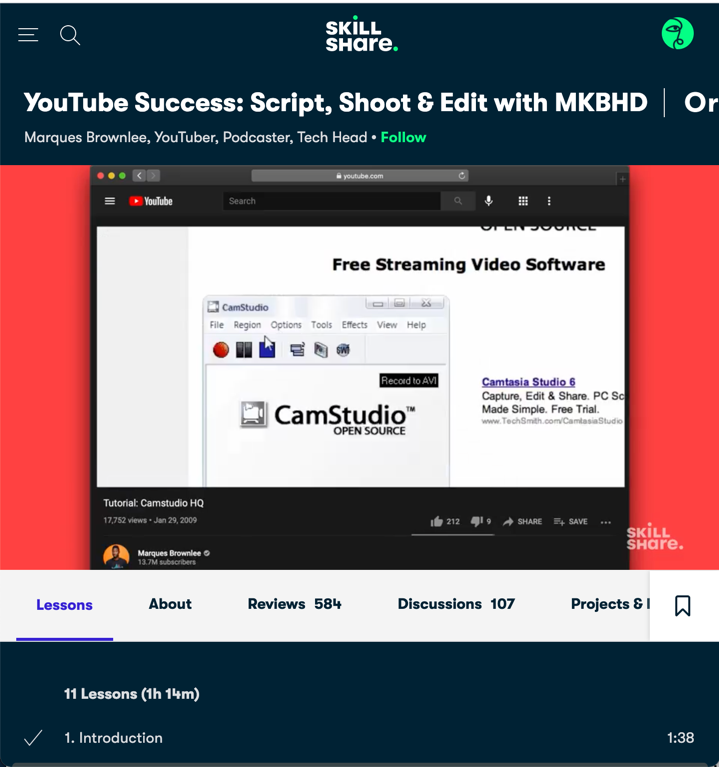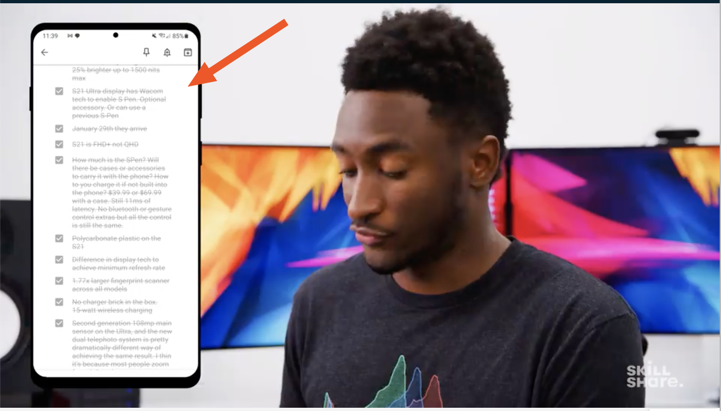YouTube Success with MKBHD and the value of an MBA in 2021
I took a break from outlining our Skillshare course to learn from how others do it. I'm definitively a reader and not a video person, so this exercise is valuable to me.
I studied the course: YouTube Success: Script, Shoot & Edit with MKBHD.
Some points I found interesting:
a/ Scripting. In the beginning, he was mostly freestyling. But today, he scripts 98% of what he will say on camera, in order to share as many useful things in the shortest amount of time possible.
He literally writes the whole thing, from the beginning to "thanks for watching." Here are his notes on Google Keep.

b/ He shows one of his early videos. It is inspiring how unpolished it is.

c/ I saw the different types of videos in action.



On an unrelated note, I talked with an engineer friend who's gravitating towards the business and leadership side of tech.
His question: What's your opinion on the value of an MBA in 2021?
My response:
First of all, don't take anything I say at face value. My opinion is just that. My first advice is to (1) write down your hypotheses of how you think an MBA will help you, ex – higher salary, a leadership role, etc. and (2) Find 3 to 5 people on LinkedIn who's done an MBA you want to do, reach out to them, and validate your hypotheses with them.
Here's a video on how to find anyone on LinkedIn.
Second, to answer, "Is an MBA worth it?" the most important thing to think about is, "What do you want to get out of it?"
This is not a cop out answer. Here are common things people expect to get from an MBA and the fastest way to acquire them.
Pure learning – If your goal is to learn all the business and leadership things you didn't know you didn't know, I'd say a book is the cheapest and fastest way to acquire this knowledge. I recommend The Personal MBA.
A friend who did an MBA said, "My take on an MBA is that the information is pretty useless and out of date. The only class I remember and that I got value from was Organizational Behavior in the first semester. The rest can be learned on the job. Therefore, value will basically lie on the network you build."
To land a job as a 'people manager' – The fastest way to do any kind of career transition is to (1) research job ads for the role to learn what it entails, (2) acquire the requisite experience, (3) show that you have the experience.
For example, to land a job as an Engineering Manager, you can research for engineering manager jobs on LinkedIn. You can identify 1-2 important experiences and skills required for this job and volunteer to help with those functions in your company.
To acquire experience, you can volunteer to help with hiring in your current company. To show that you have the experience, you can write a blog post reflecting on what you learned from hiring. How well did your new hire's performance match your assessment during the hiring? What questions did you use to assess the fit? etc.

To command a higher salary – The best way to do this is to learn to negotiate. Getting More by Stuart Diamond is good. I remember finding Never Split the Difference useful, but I don't even remember the specifics anymore. I've only ever successfully negotiated once (a 100% raise upon promotion) and that is with the help of a mentor. My only job was to never make a concession verbally and always ask to continue over email 😅 If you're in tech, especially in the U.S., I'd say hire Josh Doody of Fearless Salary Negotation. I worked with him and he's legit.
To find work and move abroad – The value of an MBA or any Master's degree is the network and the credibility. The purpose for which these two are most useful for are when you are trying to establish yourself in a new country, especially where your local network and credibility signals (school, previous jobs, etc.) are not recognized.
I have found work in new countries, thrice, and run a business teaching job hunting abroad. So obviously, I believe it's possible to do this without an MBA. But from talking to many people, I know getting one (especially from a well-known institution) can make this easier and less scary, and might be worth the time and money. (Just do your best to maximize the likelihood that your MBA internship will lead to full time employment!)